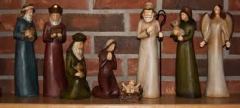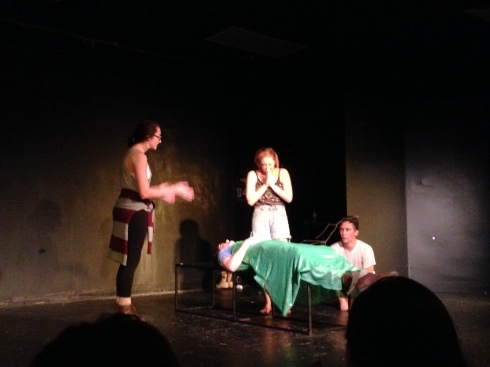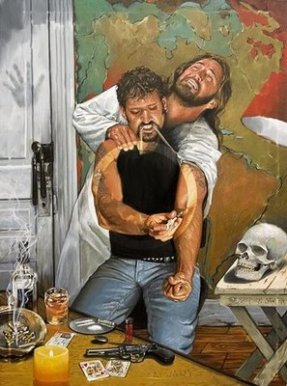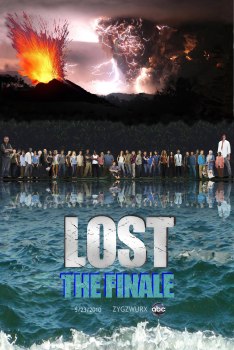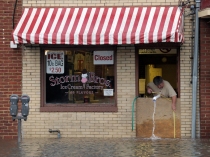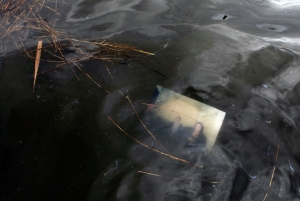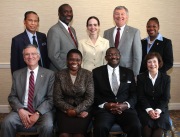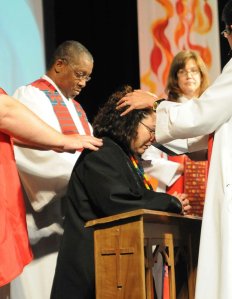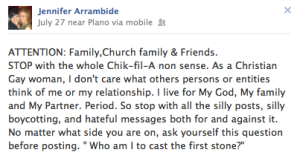Luke 19:28-40
Yesterday morning, I was proud to stand with my two sons, one of my daughters and thousands of men. We stood around city Hall because Mayor Mike Rawlings called upon the city of Dallas to end a culture that allows for Domestic Violence.
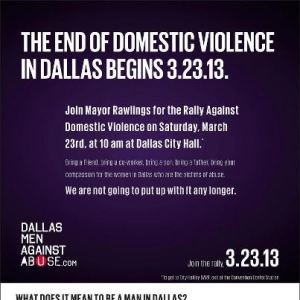
As we gathered around city hall yesterday morning, I was struck by the similarities to Palm Sunday. Palm fronds were replaced by rally towels, though we waved them above our heads, fronding, to similar affect. Like on Palm Sunday, we demanded a change in the culture of oppression and violence. We forget, too easily that Palm Sunday was a grand political protest. It began on the Mount of Olives (where all political protests and militaristic invasions took place in Jerusalem) and the words of the people invoke revolution. By invoking the words of the prophets they call Jesus, Messiah, and call for a new era where justice is only ever overruled by mercy and never corruption.
Palm Sunday was a protest.
Yesterday morning, like Palm Sunday, was a day we believed in the power of people to radically change a culture by the sheer force of their common purpose and shared conviction. In a day before non-violent resistance, Palm Sunday was a peaceful protest against violence. Like it was yesterday.
Dallas Cowboys stood in front of their crowd, and said, ‘I want Dallas to be known not by its 5 Super Bowl Championships but as the city that has made the greatest difference in affecting a change in a culture of domestic violence.
I was inspired. But I was also sad. One of the prophecies of Palm Sunday came true.
“Rabbi, tell your disciples to be quiet,” some of the Pharisees tried to reason with Jesus-talk the crowd down from their dangerous proposition.
Jesus response: “if they are quiet then the stones themselves would shout.”
I was sad yesterday because it was not the church that called 10,000 men to end domestic violence. Sure, the church participated and provided some of the best speakers, but it was the Mayor and the Dallas Cowboys that provided the real leadership and the City of Dallas who will lead the charge.
“If my disciples are silent, the rocks themselves will shout out.”
I am disturbed by the fact that 1 in 4 women will be victimized by partner violence by the time they are old enough to graduate college.
I am disturbed by the fact that 13,000 cases of Domestic Violence were reported in Dallas last year—that’s 35 a day and, by the way, it is just as prevalent in that park cities as it is anywhere else in Dallas. DV does not know race or socio-economic status.
But what really pains me is this:
Statistically, church members are just as likely to be abusers and victims.
Sunday, is the most common day for Domestic Violence to occur.
There is a direct correlation between the score of the Cowboys game and hte number of domestic violence calls.
I know that we have been silent and I know that the stones themselves are rising up to speak because if the United Methodist Church had addressed Domestic Violence these statistics wouldn’t hold! And so the stones themselves are speaking out.
The passion story is more than a story of salvation and sacrifice. It’s a cautionary tal
e of a church that Jesus foretold and the disciples lived out.
(The Duck Church)
At the rally yesterday, one of the best speakers was a preacher whose name I,unfortunately, cannot remember, He told a story that floats around pastors from time to time. It’s about Duck Church.
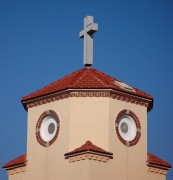
There was once a town full of ducks who waddled everywhere. One Sunday morning, they waddled into church and heard an inspiring sermon from Duck Matt Gaston. He told them three important things.
1) Remember that you are ducks.
2) Know that ducks have wings
3) You were made to fly!
The duck congregation went crazy. Duck Richard Hearne shouted loud amens throughout and the congregation was visibly stirred. Duck Damin Spritzer played a beautiful piece on the pipe Organ and the duck choir quacked along with a song so beautiful that many members of the congregation closed their eyes and felt like they were flying for the first time.
At the end of the service, many ducks shook wings with Duck Matt and thanked him for reminding them that they are ducks with wings who are called to fly.
And they all waddled home.
The story of duck church is the disciples’ Passion story. The “multitude of disciples” were all fired up talking about the power of God and the new kingdom of peace and by the end of the week Jesus is left standing there, looking around. “for all of his acquantances” the scripture says—not just the close friends but even down to the acquaintances—stood at a distance.
We have been blessed to be a blessing, but far too often we just act blessed.
I feel like I’ve spent far too much of my life arguing and working on issues over which we, in the church, easily disagree. I’m from NJ, so arguing is in my DNA, but I need to find ways to get past that. What if we spent that time working, really working, on the issues over which there is unity and there are a great many issues in our world over which we find unity!
No one in this room believes it’s a good thing to abuse women and children. Even abusers have remorse over their actions, which is part of why the cycle continues.
I don’t think anyone in this room is okay with the fact that someone dies of hunger-related causes every 7 seconds in the world.
I don’t think anyone in the church is content with the fact that many people find suicide their best option.
I think we would have a hard time finding churches that support bullying in our schools.
And yet so many great ills in our society continue in the face of a silent church!
(The Sirens)
I’ve always been intrigued by Greek mythology. One danger, in particular, always struck me: the sirens. The Sirens sat on a rock through some oceanic pass that offered a deadly shortcut. The sirens were beautiful sang a song so glorious that sailors would steer their ships towards the sirens, wreck the ships on unseen rocks and were then gobbled up by the sirens. There were only two ships who successfuly navigated the sirens.
One was Odysseus. In a time crunch he had to pass by the sirens. TO navigate it safely, he stuffed wax in the ears of his sailors, blindfolded them and tied himself to the mast of the ship.
The other was Orpheus, a musician, who simply sat at the bow and played more beauitful music.
Odysseus’s way is the way of the stones
Ours is the way of more beautiful music
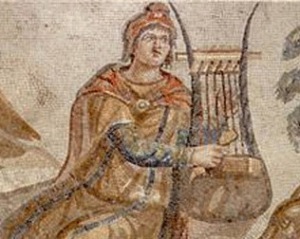
(So the Stones Don’t Have To)
So I say, let us raise our voice so that the stones don’t have to.
Let us raise our voice for love because safe sanctuaries are not enough, we cannot rest until our homes are sanctuaries for love.
Let us raise our voice for education so that little girls grow up knowing that the men who love them cannot strike them.
Let us raise our voice of manhood, so that little boys grow up, knowing that
real men don’t resort to violence,
that real men hold their brothers accountable and
that gentleness is not the opposite of manliness.
Let us raise our voice of justice because silence is the friend of oppression.
Let us raise our voice so that abusers might lower theirs, choosing to give up control
Let us raise our voice so that the children of Dallas never have to stand in the way of their father’s fist, so that families don’t have to lie about their bruises, so that abusers don’t speak in code as a way to warn their spouses that they are out of line
Let us raise our voice so that abusers might find wholeness, pride and acts of repentance that lead to redemption.
Let us raise our voice for gentleness now but let us not just speak about domestic violence.
Let us raise our voice so that the children in our schools never live in fear of a bomb, a gun or a fist.
Let us raise our voice so that those who feel there is no way out will know that there is always hope in Jesus Christ.
Let us raise our voice to shout down the demons of suicide, the demons of loneliness, the demons of hopelessness because our music is far more beautiful than anything the demons have to offer.
Let us “lift every voice and sing, till earth and heaven ring, ring with the harmonies of liberty!”
I don’t want to wait for the stones to sing about it, the mayor to write about it or congress to incentivize it.
Let us raise our voice for community now!
Palm Sunday is a day of revolution and Jesus is looking for recruits!
(The Promised Land)
I see Paige Flink, director of the Family Place, here. Wouldn’t it be great, Paige, if, on some Easter Sunday, we are able to walk out together and board up the doors of the Family Place? Not because funding has run out but because our mission is accomplished.
Wouldn’t it be great if our kids didn’t fear going to school anymore?
Would’t it be amazing if suicide no longer marred our society with unseen scars?
Then, maybe then, once we have accomplished great work on these matters about which we agree, perhaps we will have worked together enough to work better together on issues about which we are not yet on one accord because once you’ve worked with someone, once you’ve sweat side-by-side with someone on soemthign that matters you see them in a new way.
(Adding Days and Minutes)
But this is a tall order. The scope of the work to be done is great and can paralyze.
What if, in our life time, we were responsible for adding hours—so that domestic violence only occurs once a day in Dallas instead of 35 times a day?
What if, in our life-time, we were responsible for making it every 30 seconds that someone dies of hunger, instead of every 7 seconds—a difference of 512 lives / hour?
Or we could remain silent. We could “stand at a distance” as the disciples and the women who followed Jesus did. It will not keep God from working. “Even the stones will shout out,” Jesus says.
“The moral arc of the universe is long and it bends towards justice.” The fix is in. We know how the story ends. God does not need us, but God wants us—to hasten the day when the last wound is inflicted, when the last bruise heals, when we meet down by the riverside and study war no more, when the last drop of blood has been shed, when the savior does not have to die.
This is why we wave our palms.
This is why we sing this day—so that world won’t have to wait…so that God won’t have to raise up the stones.

